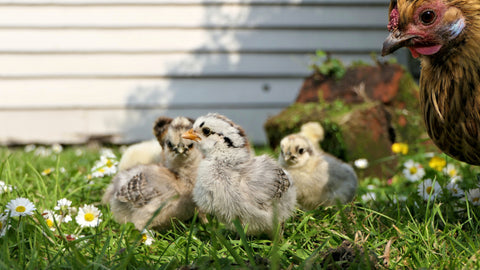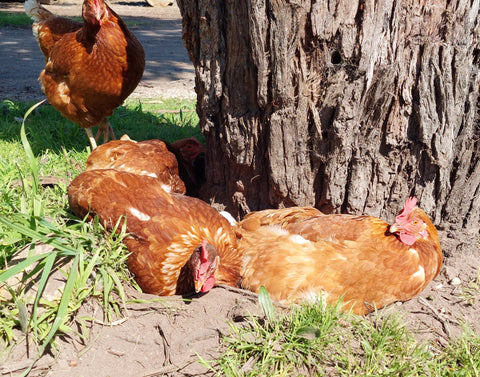To safely deliver the nutrition and hydration that your hens need requires a couple of important devices that make it easy. Drinkers and feeders are essential to not only take care of your hens but also retain your sanity.
If you want to save money you can always use a bowl for feed and water but they will encourage spilling, contamination and wastage. You will also find yourself frequently replenishing your water and feed bowls which will take up time and drive you crazy during the summer when hens are thirsty.
Feeders
Feeders are devices that provide the right flow of feed to your hens whenever they feel hungry. They come in different shapes and forms, but it is important that you match your feeder to the number and breed of hen that you have, along with your available time.
You can waste a lot of money on buying a feeder that is either too big or too small for your needs, is of poor quality, or is set up wrong so that it wastes feed. As a rule of thumb, a 5kg feeder will keep a pair of actively laying hens fed for around 20 days and six hens for around six days. A Hy-Line Brown laying hen will get through around 130g of high-grade
Always calculate the amount of feed needed for the number and type of each breed of chicken you own. We have a handy chicken feed calculator on the website that will give you a good idea. If you find that your flock are going through more or less feed than they should be eating, look to pests or feed quality as potential causes. Remember that the more your laying hens eat of a
Common types of feeders
The most common types of feeders include:
The most common (and inexpensive), type of chicken feeder for the backyard chicken keeper is the
It is best to hang your bell feeder on a chain with an 'S' hook at the end to hang the feeder on. The “moat” should be hung around 25 to 30cm from the ground for the medium-sized hybrid laying hens such as our
Another feeder that is quite a bit more expensive, but often a worthwhile investment, is the
The 'tube' style feeders are quite popular due to their efficient use of space. This is particularly relevant to families who own small, imported coops where space is at a premium. Some tube feeders can be extended for greater feed capacity and allow the feeding area to be the only part that is inside the coop with the feed silo on the outside. Our
Drinkers
It is vital that your hens receive enough clean water, which is essential for health and good egg production. Laying hens will consume around 220 mL of water each day on average, with more or less consumed depending on the climate.
Using a good drinking device will make it easy for your hens to access water and reduce the amount of dirt or debris getting into it. Poorly designed drinkers will just encourage spilling and contamination of the water.
Like the chicken feed calculation above, make sure you calculate how much water your flock should be consuming on average each day. A simple way to do this is to measure exactly 1 or more litres of water and place it in your drinker at the start of the day then measure what's left after nightfall. Make sure that your drinker is the only water source that your flock can access for the day. Calculate the difference and you'll have a good idea of the minimum amount of water you will need for your flock.
Armed with your flock's daily water consumption requirements, you’ll be able to purchase a good drinker that is right for your situation and your available time. As an example, a flock of five
Don’t forget to clean your drinker periodically and watch for any signs of gunk or slime, as you’ll want to remove it immediately. Poor quality water is a key reason for poor hen health and egg quality issues, yet is often overlooked. Also, don’t forget to check your flock’s water supply daily as they won’t last more than 48 hours without it!
Common types of drinkers
The most common types of drinkers include:
The
Like the bell feeder, they should be hung using an 'S'
The ChookTower is a type of
Please feel free to contact Talking Hens if you would like more specific guidance and the feeder or drinker best suited to your particular setup.







Comments (0)
There are no comments for this article. Be the first one to leave a message!